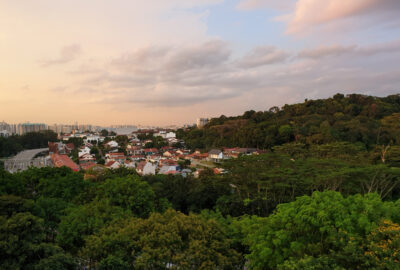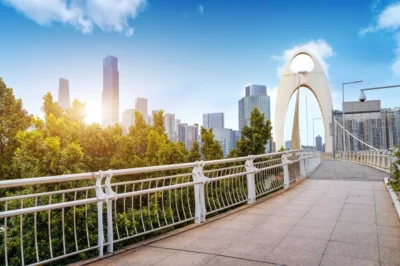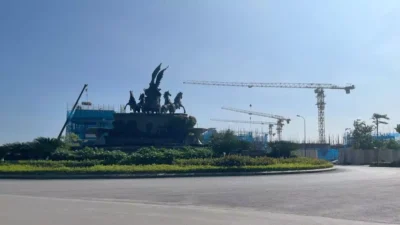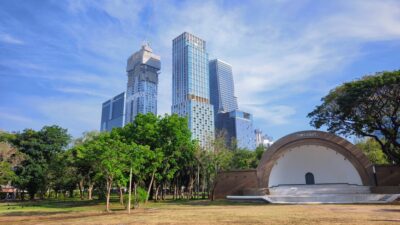News roundup: 5 housing developments within proximity of Bangkok, and other headlines

For PropertyGuru’s real estate news roundup, we introduce five housing developments that are within easy access to Bangkok. In other headlines, Hong Kong’s only private low-rent housing estate, Tai Hang Sai Estate, is set for demolition and redevelopment, and a commentary on Vietnam’s uncertain political outlook that may raise concerns from investors.
5 housing developments within easy reach of the Thai capital
The market’s evolution, driven by a mix of economic factors, changing consumer preferences, and significant foreign investment, set the stage for a diverse range of housing opportunities in Thailand.
The pandemic has reshaped consumer preferences significantly, with a growing expectation that homes combine the comfort of extra office space and the tranquillity of outdoor areas. This shift is also reflected in the rising popularity of sustainable and eco-friendly communities, which are becoming the new norm in residential real estate throughout the country.
Foreign investment is also playing a pivotal role with international buyers once again showing a keen interest in locales like Pattaya, Khao Yai, and Hua Hin. This influx, fueled by Thailand’s recovery post-pandemic, marks the country as an attractive investment hub on the global map.
With this in mind, DDproperty showcases five of the most appealing villas and landed residences within proximity of Bangkok, each offering a unique blend of luxury, style, and connectivity, catering to those seeking the tranquillity of suburban living with easy access to the Thai capital.
As redevelopment looms, residents look back on life in Hong Kong’s only private low-rent housing estate
Mary Kwan moved into Tai Hang Sai Estate soon after it was completed in 1965. Almost 60 years later, the 80-year-old is preparing to quit her eighth-floor flat for a transitional housing project in Tai Po.
Tai Hang Sai Estate, Hong Kong’s only privately-owned low-rental housing estate, is set to be demolished and redeveloped, which is why Kwan – and many of her former neighbours – must vacate their homes. Because the deadline to move out was initially set for mid-March, Kwan had already packed most of her bags, which were stacked next to her sofa when HKFP spoke to her.
Built in 1965, with an eighth block added in 1977, the estate was initially meant to rehouse people affected by the clearance of the Tai Hang Sai Resettlement Area, offering over 1,600 units below market value.
Even with the rent subsidies, finding new homes has proved a challenge for many of Tai Hang Sai Estate’s elderly residents. Just days ahead of the March 15 deadline for vacating the estate, Kwan was notified that she had more time to sort out her affairs. At the time, she was still waiting for her application for transitional housing to be processed.
Commentary: Two presidents ousted in one year – what is Vietnam’s political outlook?
The Central Committee of the Communist Party of Vietnam announced on 20th March that it had accepted President Vo Van Thuong’s resignation from all official and party positions, according to CNA.
On 21st March, Vietnam’s National Assembly convened an extraordinary session to officially vote on his resignation, just one year into his presidency. Thuong is understood to be involved in a bribery scandal related to local real estate developer Phuc Son, which is currently being prosecuted on different corruption charges.
Thuong’s resignation marks the beginning of a new phase of political uncertainty in Vietnam. Since the Party’s 13th National Congress in early 2021, there have been numerous high-profile dismissals and prosecutions, including four Politburo members (including Thuong and his predecessor Nguyen Xuan Phuc), a deputy prime minister, two ministers, and over a dozen provincial leaders.
The swift replacement of presidents is particularly noteworthy, as Phuc was also removed from office after less than two years in early 2023.
Like Phuc’s, Thuong’s departure will not result in significant policy shifts. But it has raised concerns among investors. Many of these investors were drawn to Vietnam precisely because of its relatively stable political climate compared to other countries in the region. However, the news of Thuong’s pending departure has added to their unease.
To make matters worse, General Secretary Nguyen Phu Trong’s poor health and the uncertainty surrounding his succession plan will likely intensify political infighting leading up to the next National Congress in early 2026. This will further exacerbate investors’ concerns.
The Property Report editors wrote this article. For more information, email: [email protected].
Recommended
Meet the expert helping overseas investors crack Australia’s property market
Ivan Lam of property advisors Charter Keck Cramer helps clients navigate Australia’s complex real estate dynamics
6 spots to check out in Singapore’s Bukit list neighbourhood
The sought-after Singapore neighbourhood offers lifestyle amenities, green space, and new residential projects
Thailand’s real estate sector watches closely as the Shinawatras return to power
Time will tell if the return to power in Thailand of the Shinawatras will lift the country’s ailing real estate sector
China’s homebuying surge: Can new stimulus measures keep the market rally alive?
Stimulus measures have sparked a surge in homebuying activity around China, but many are sceptical the shift will endure








